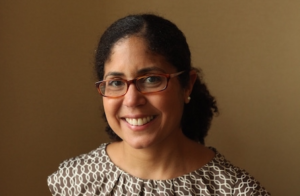Population Research Discovery Seminars

Childhood Adversity as a Contributor to Disparities in Cardiovascular Disease
Shakira Suglia, ScD, MS, Associate Professor, Department of Epidemiology, Rollins School of Public Health – Emory University
Moderated by:
Maria Bleil, PhD, Clinical Assistant Professor, UW Department of Child, Family and Population Health Nursing
Register for Zoom Seminar HERE
04/09/2021
12:30-1:30 PM PT
Social determinants of health are associated with cardiovascular risk factors and outcomes. Childhood adversity, including experiences of child maltreatment, household dysfunction and exposure to violence, encompass a variety of social determinants that are highly prevalent among racial and ethnic minorities and families of lower socioeconomic status. Emerging evidence has documented associations between childhood adversity and poor cardiometabolic health. This talk will highlight potential mechanisms linking childhood adversity and cardiometabolic as well as factors which may modify or exacerbate this association.
Dr. Shakira Suglia is an Associate Professor of Epidemiology at Rollins School of Public Health, Emory University. Her research examines the impact of social determinants, focusing on childhood exposures to violence, housing and neighborhood factors on health across the lifecourse. She is particularly interested in learning how these social factors can affect cardiometabolic health through a stress pathway. Her current research examines how stress stemming from multiple social factors in childhood and adolescence impacts cardio-metabolic health outcomes among Puerto Rican young adults living in the South Bronx, NY and the San Juan metro area in Puerto Rico. In this ethnically homogenous population living in two different social contexts, she will examine both factors that exacerbate the social stress and cardiometabolic health relation but also factors that may buffer the impact of stress on health. Dr. Suglia also leads two studies which examine the associations of childhood and adult socioeconomic status and social stressors on methylation age and telomere length in adulthood. This work can extend our understanding on how stress ‘gets under the skin’ to alter cardiometabolic health and other chronic health conditions. Dr. Suglia obtained her MS in Epidemiology from the University at Albany, SUNY and her ScD in Epidemiology and Environmental Health from the Harvard T.H. Chan School of Public Health.